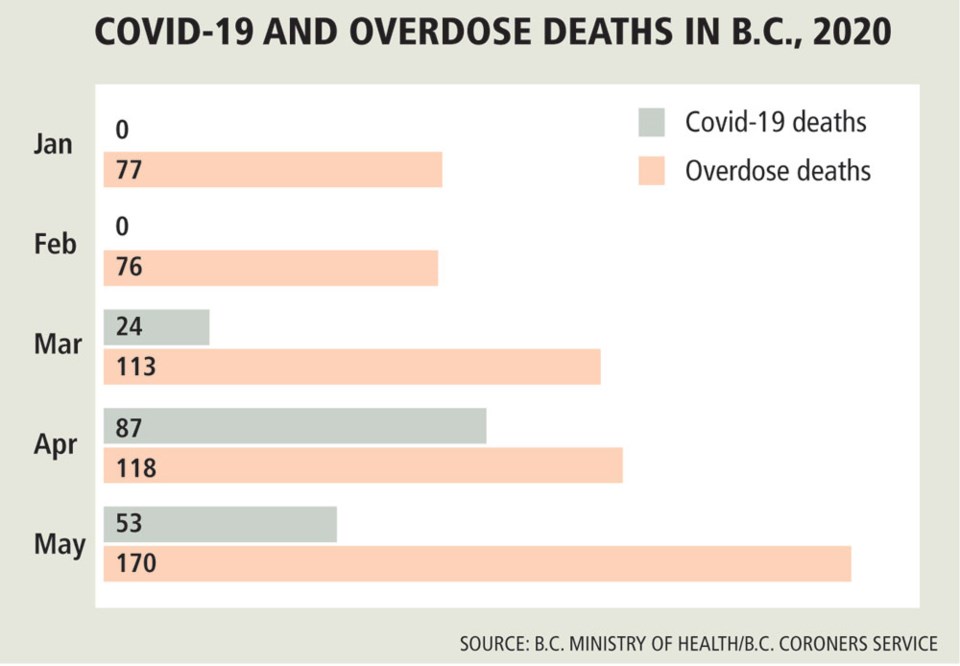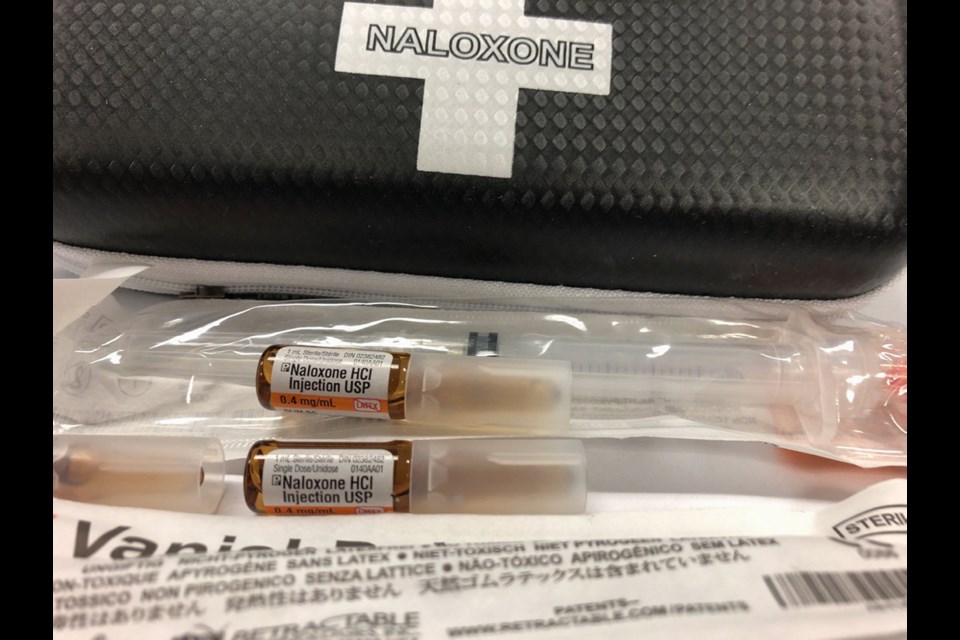British Columbia has recorded its highest number of illicit-drug-overdose deaths ever in a single month, reaching the grim milestone in May.
The B.C. Coroners Service said 170 people died from illicit-drug overdoses in May, the equivalent of 5.5 deaths per day.
The previous monthly high was 161 illicit-drug-toxicity deaths in December 2016.
More B.C. residents died from drug overdoses last month than have died from the COVID-19 virus this year. In B.C. this year, there have been 554 drug-overdose deaths, versus 167 deaths due to COVID-19.
Island Health recorded 38 illicit-drug-toxicity deaths in May, its highest monthly total since the opioid crisis began. Its previous high was 28 illicit-drug deaths in January and March 2018.
Since January, 98 drug-overdose deaths have been recorded by Island Health, including 54 on the South Island, 32 deaths on central Vancouver Island and 12 deaths on northern Vancouver Island.
Chief coroner Lisa Lapointe said the federal government should take bold action on the overdose epidemic as it has done with COVID-19.
“You can’t help but draw the parallel that far more lives have been lost to substance use than to the pandemic,” Lapointe said in an interview on Thursday.

There have been nearly 4,500 overdose deaths in B.C. since the province declared a public health emergency. Illicit-drug-toxicity death rates in B.C. are the highest for any jurisdiction in Canada, and every region in B.C. has been affected.
Many of the deaths are related to COVID-19 measures that have kept people away from supervised-consumption sites, so they end up using toxic drugs alone.
“Many of those who died lived alone and, in fact, weren’t found for some time,” Lapointe said.
She said the usual drug supply chains have been disrupted by border closures during the pandemic, creating opportunities for those who might be producing more powerful illicit substances without much knowledge.
“If it’s not in an actual lab then it might be in somebody’s kitchen lab,” she said.
Post-mortem toxicology suggests the increase in deaths is due to extreme fentanyl concentrations in the illicit-drug supply. (Extreme concentration means fentanyl exceeding 50 micrograms per litre.)
In April and May, about 19 per cent of drug-death cases involved extreme fentanyl concentrations, compared with nine per cent between January 2019 and
March 2020, the coroners service reported.
Carfentanyl has been detected in six illicit drug deaths this year.
The drug supply is unpredictable and highly toxic, which has led to an increase in overdoses from smoking and injection in recent months, said Dr. Jane Buxton, harm-reduction lead for the B.C. Centre for Disease Control. “COVID-19 has added challenges and people may be feeling more isolated and anxious, but it’s important to continue to buddy up, or access local overdose-prevention and supervised-consumption services during this time.”
Provincial health officer Dr. Bonnie Henry said the COVID-19 pandemic in the midst of an overdose crisis has overwhelmed the province’s resources. Henry renewed her call for decriminalization of people who possess small amounts of drugs for their personal use.
“I believe we have ways within B.C. that we can have de facto decriminalization and some of those we see already in place where people don’t face criminal charges, they may face administrative issues.
“They may actually get the support that they need to understand the issues that led them to use drugs in the first place.”
The public safety minister and the solicitor general have been considering the issue, which also involves the federal government, she said.
“We do want action at the federal level and I’ve been calling for that and will continue that call today for action at all levels.”
Vancouver, Surrey and Victoria are experiencing the highest number of illicit-drug deaths this year.



